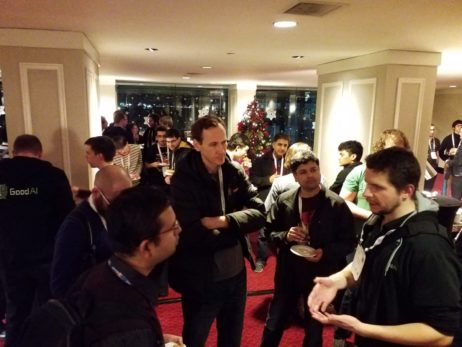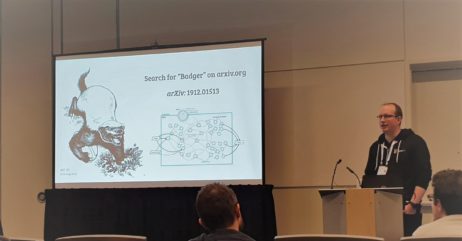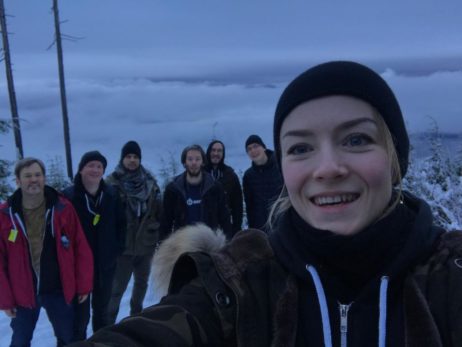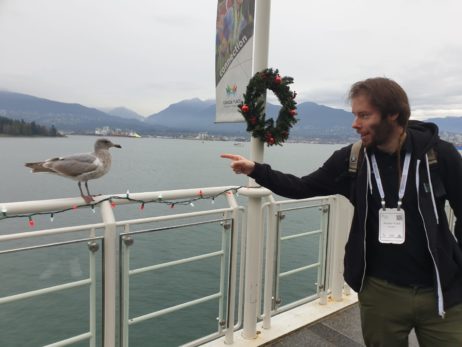The GoodAI Research team recently traveled to Vancouver, Canada for NeurIPS 2019 where they introduced the new Badger Architecture to many participants and had great discussions with some of the best minds in the industry!
The conference welcomed around 13,000 attendees and GoodAI organized a meetup on Multi-Agent Reinforcement Learning and helped present the results of the Animal-AI Olympics.
Meet-up
On Thursday 12 December GoodAI set up a meetup on Multi-Agent Reinforcement Learning (MARL) which was attended by over 100 people. Attendees discussed MARL and other related themes and the GoodAI Research team introduced the Badger Architecture to interested participants.

CEO Marek Rosa speaks with participants of the meetup.
Animal-AI Olympics Results
As part of the competition stream Senior Research Scientist at GoodAI, Jan Feyereisl, joined Matthew Crosby from The Leverhulme Centre for the Future of Intelligence and Hiroshi Yamakawa from The Whole Brain Architecture Initiative (WBA) to show the results of the Animal-AI Olympics which tested AI-agents on common animal cognition tasks. You can check out the results as well as playing with, or watching, the testbed on the new Animal-AI Olympics website.

Senior Research Scientist Jan Feyereisl speaks about the Animal AI Olympics.
Highlights for the team
One of the highlights for the GoodAI team was learning more about the work of Deepak Pathak et al. “Learning to Control Self-Assembling Morphologies: A Study of Generalization via Modularity.” It shows how a collection of primitive agents learns to dynamically self-assemble into composite bodies while also learning to coordinate their behavior to control these bodies. The paper is summed up in the video below.
Another paper that caught the eye of our team was “Generative Teaching Networks: Accelerating Neural Architecture Search by Learning to Generate Synthetic Training Data” which looks at the question of whether “we can create learning algorithms that automatically generate training data, learning environments, and curricula in order to help AI agents rapidly learn.”
Enjoying Canada
Despite the busy schedule the team even managed some time to enjoy the Canadian wilderness!








